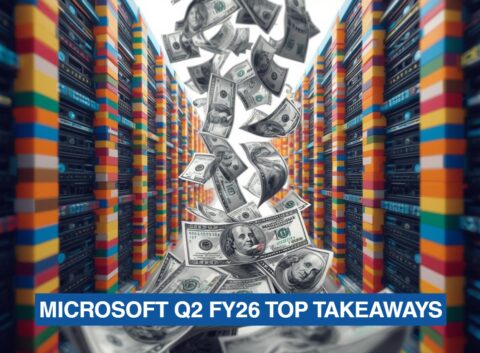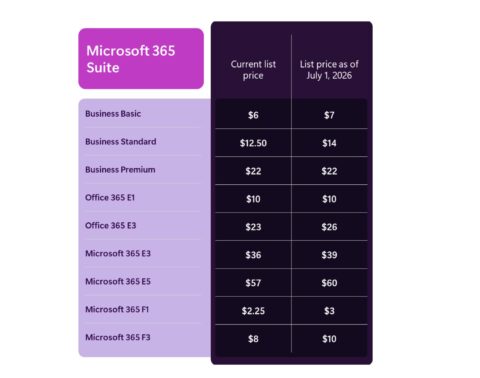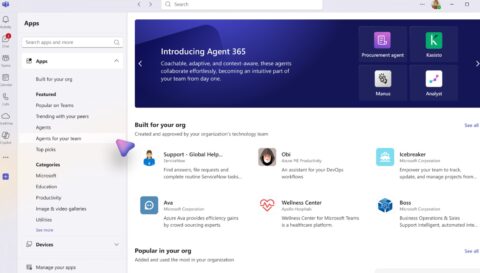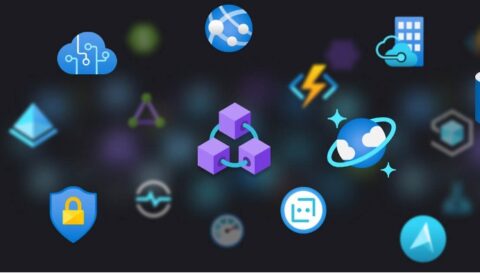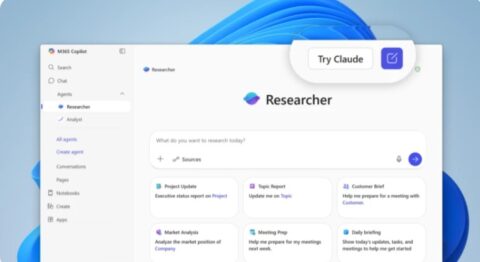Updated: January 30, 2025 (January 30, 2025)
BlogMicrosoft makes DeepSeek R1 model available via Azure AI Foundry and GitHub

Just a few days after the newest AI industry darling DeepSeek unleashed its latest model and app for free, Microsoft made DeepSeek’s R1 available in its own model catalogs.
Microsoft officials said that R1 is available via its own GitHub and Azure platforms. DeepSeek R1 on Azure AI Foundry platform is supported with “automated red teaming, content safety integration, and security scanning,” Microsoft officials said. Microsoft already offers more than 1,800 models, including industry-specific, frontier, and task-based models, via its catalogs.
DeepSeek is a Chinese startup founded by the Chinese stock trading firm High-Flyer. It is building products that will compete head-to-head with OpenAI’s ChatGPT and Google’s Gemini.
On Jan. 29, Microsoft also committed to making “distilled flavors” of R1 able to run locally on Copilot+ PCs “soon.” Microsoft plans to make NPU-optimized versions of R1 available for devices starting with those based on Qualcomm Snapdragon X, and later also on Intel Core Ultra 200V. (Some people already have downloaded R1 to their Windows PCs running various processors and are running it locally.)
Over the past few years, DeepSeek released various large language models and in Jan., it delivered its first chatbot app called DeepSeek-V3. Last week, DeepSeek released R1, along with a white paper claiming it could train its systems far more cheaply than the current group of AI leaders. DeepSeek’s code is largely (though not completely) open source.
The same day that Microsoft made R1 available on its own platforms, Microsoft and its partner OpenAI claimed DeepSeek may have copied output from ChatGPT beginning last fall. (As many industry watchers have pointed out, OpenAI is under scrutiny — and some lawsuits — for allegedly copying content from various companies to train ChatGPT.)
DeepSeek Doesn’t Spell the End of Microsoft’s Cloud, AI Spending Spree
Microsoft committed earlier this year to spending US$80 billion during fiscal 2025 (July 1, 2024 to June 30, 2025) on building out datacenters and supporting infrastructure, much of which will be dedicated to supporting AI.
Microsoft CEO Satya Nadella continues to maintain that Microsoft has been expecting AI costs to fall as large language models become increasingly commoditized, which will lead to more demand for those technologies. During the company’s FY25 Q2 earnings call on Jan. 29, Microsoft officials gave no indication that the company plans to reduce this spending, even if these costs fall, because running commercial-cloud apps and services will continue to require more compute, storage, and other building block pieces.
During Microsoft’s second quarter of its fiscal 2025, the company spent $22.6 billion, largely for building out its cloud and AI offerings, and is anticipating spending similarly in the next two quarters. In FY ‘26, however, Microsoft is expecting capex spending rate to slow a bit, officials said, with spending shifting back to assets that will directly impact revenue growth.
Microsoft also said during the Q2 earnings call that Azure and “other cloud services” grew 31 percent in Q2 year-over-year, which was down a couple of percentage points from the rate in previous quarters. Supply constraints were in part to blame for the slower growth rate, officials said. Thirteen points of Azure’s contribution in Q2 came from AI services growth, according to Microsoft.
Commercial bookings were up 67 percent year-over-year during the quarter — more than double the percentage of most recent quarters. Microsoft execs attributed that large number to a new large unspecified commitment from OpenAI, along with new commitments from new and existing customers; add-ons and upsells; E5 subscription growth; and demand for various Copilots.
Microsoft cloud revenues for the quarter were $40.9 billion. Total AI revenues are on track to surpass $13 billion annually, officials projected.
Related Resources
Microsoft releases DeepSeek R1 on Azure Foundry, GitHub
Microsoft says ‘distilled flavors’ of R1 coming to Copilot+ PCs ‘soon’




